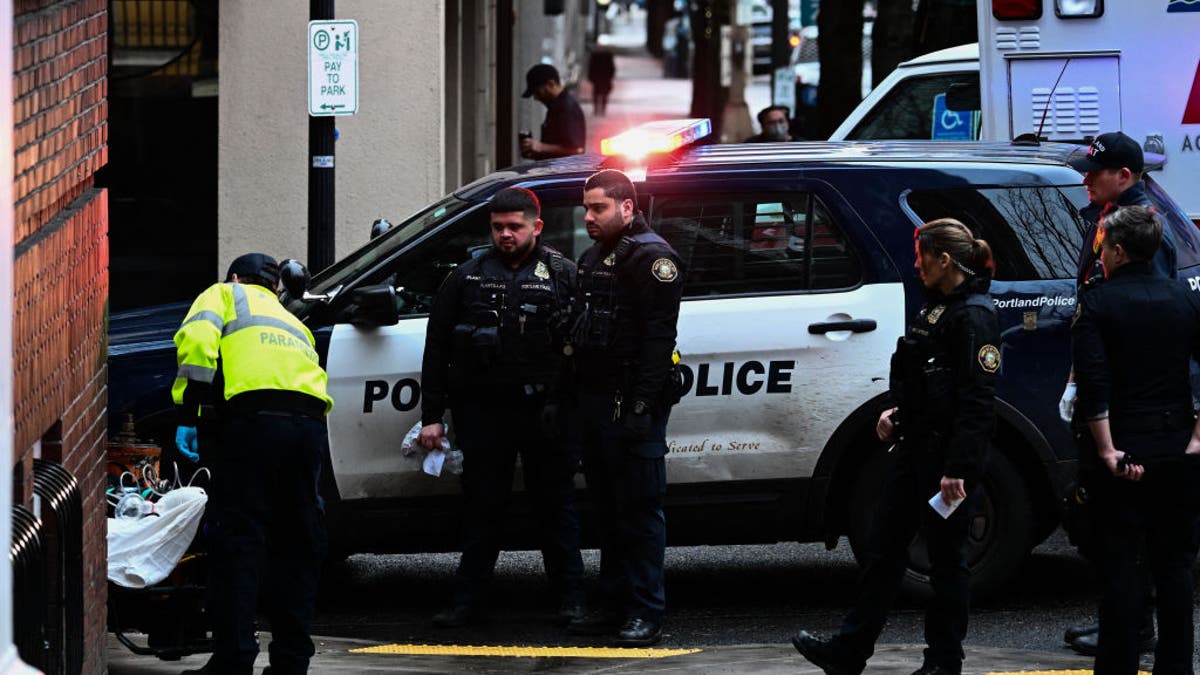Oregon's decision to re-criminalize possession of drugs including fentanyl, heroin and methamphetamine means people caught with hard drugs will once again be at risk of state criminal penalties.
Oregon became the first state in the nation to decriminalize possession of small amounts of hard drugs in a 2020 ballot initiative, but a new law that goes into effect Sunday will re-criminalize those offenses.
The new law, HB 4002, would give people arrested with small amounts of hard drugs, such as fentanyl, heroin or methamphetamine, the right to choose between being charged with possession or undergoing a treatment program that would require them to complete a behavioral health program to avoid fines.
Casey claims he invested in McCormick-led Chinese company to “profit” from fentanyl crisis
Syringe collection boxes are placed on the street as Portland Police officers investigate drug transactions and issue drug possession citations while patrolling downtown Portland, Oregon on January 25, 2024. (Photo by Patrick T. Fallon/AFP) (Photo by Patrick T. Fallon/AFP via Getty Images)
Possession for personal use is a misdemeanor punishable by up to six months in jail, but the law encourages, but does not require, counties to create alternative treatment programs to divert offenders from the criminal justice system.
The report said the new law will make it easier for police to crack down on public drug use, a widespread problem in parts of the state in recent years, and will also increase penalties for selling drugs in public places, such as near parks.
Offenders who opt into the treatment program must meet strict eligibility criteria to avoid prosecution, and those arrested for possession must have “no other charges, no warrants, no violent activity and be medically stable,” Portland Police Chief Bob Day told the Guardian.

A person holds a foil while smoking in response to the decriminalization of all drugs, including fentanyl and methamphetamine, in downtown Portland, Oregon, on January 25, 2024. (Photo by Patrick T. Fallon/AFP) (Photo by Patrick T. Fallon/AFP via Getty Images)
More than 2,000 pounds of methamphetamine smuggled into celery at Atlanta Farmers Market
If a person caught in possession of hard drugs chooses to participate in a drug diversion program and is eligible, the officer will call the county’s Drug Diversion Command Line, which will connect them to a mobile behavioral health outreach team.
“If a behavioral health professional can't get there within 30 minutes, we're going to jail. We can't just wait,” Day said. “It's certainly not fair, but I would argue that it's not necessarily the norm. I'm not saying it's right.”
However, opponents of the new law say it is too complicated, pointing out that different counties have different resources and rules, which could confuse drug users who may face criminal penalties.
So far, 28 of the state's 36 counties have applied for grants to fund crime diversion programs, with more than $20 million in grant funding expected to be awarded by the State Criminal Justice Commission next year, according to the report.
Click here to get the FOX News app

Portland Police officers look on as American Medical Response (AMR) paramedics transport a patient after administering Narcan brand naloxone nasal spray to a patient suspected of a fentanyl drug overdose in Portland, Oregon on January 25, 2024. (Photo by Patrick T. Fallon/AFP) (Photo by Patrick T. Fallon/AFP via Getty Images)
“It's going to be a very complicated system, and people who use drugs basically won't know their rights or what to expect because every county is different,” Keren Russoniello, public health director for the Drug Policy Alliance, told the Guardian. “Whether you're connected to services or whether you're just flushed through the system is going to depend a lot on where you are in the state.”
Other lawmakers, such as Democratic state Rep. Jason Klopf, who sponsored the legislation, expressed optimism about the state's new direction.
“I'm optimistic and hopeful,” Klopf told the Guardian, “but I'm also realistic that we have a lot of work ahead of us.”

